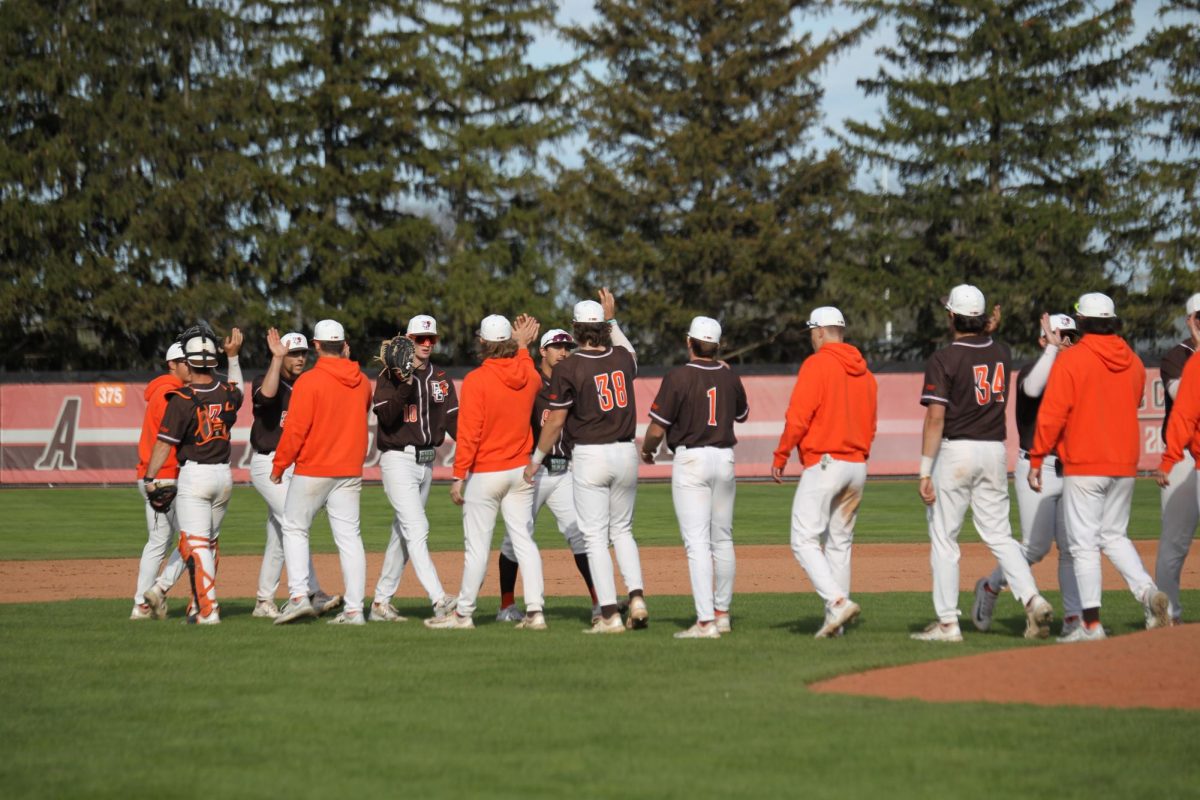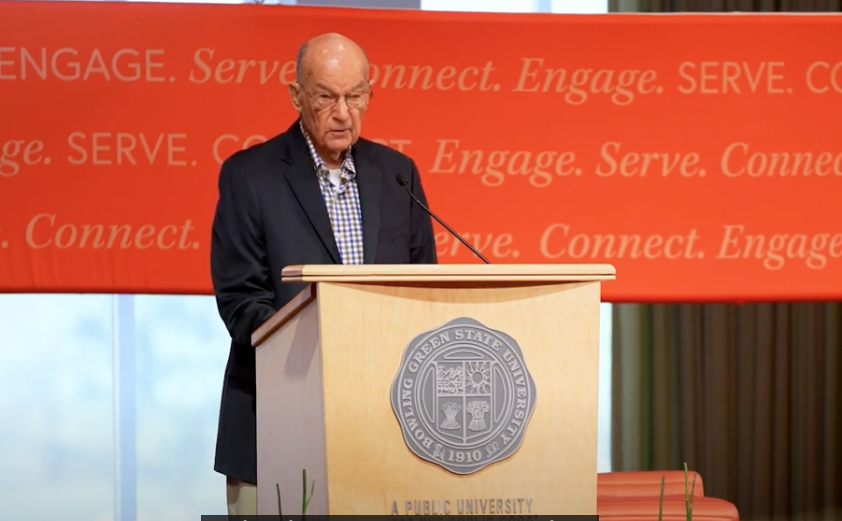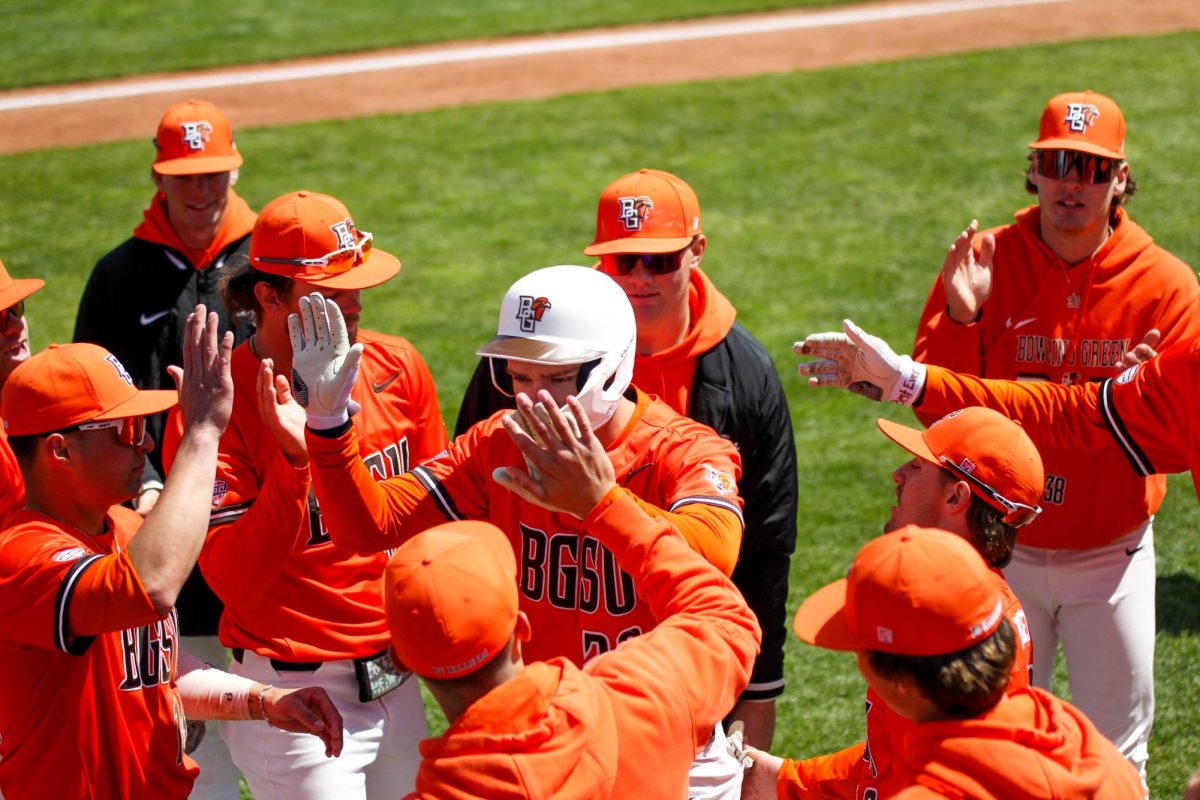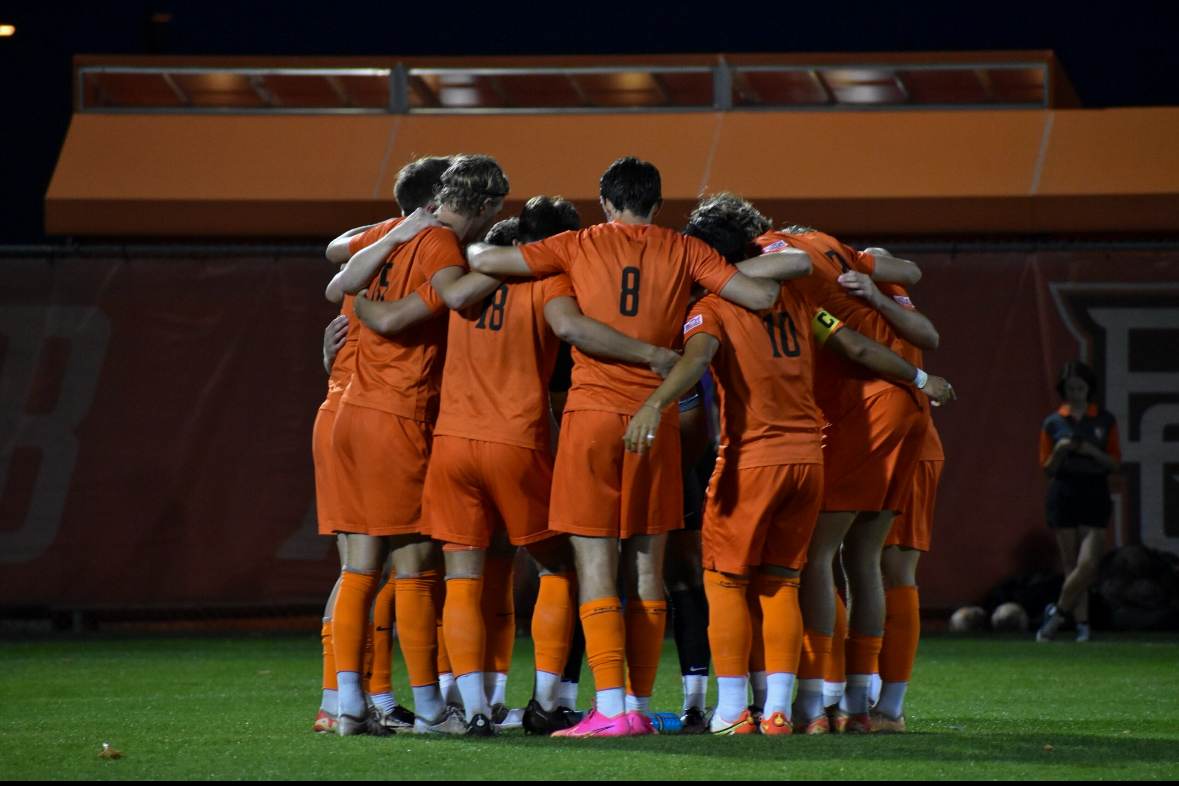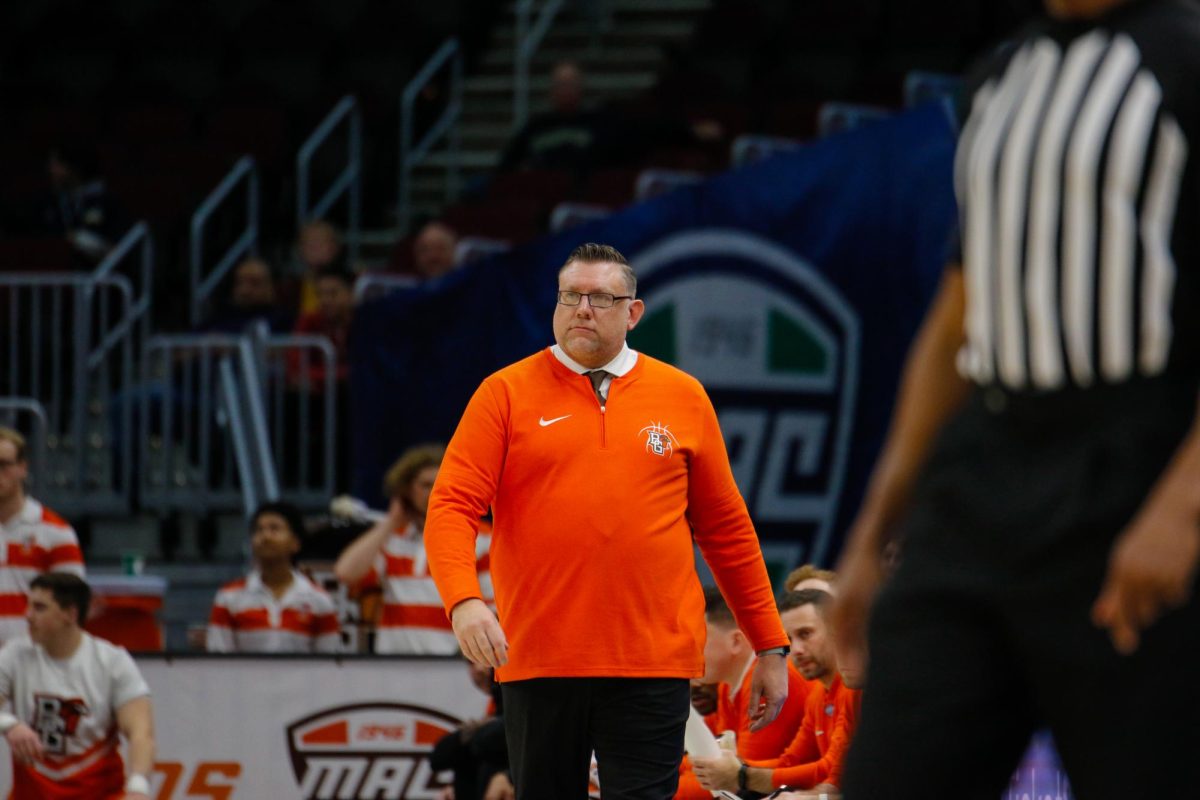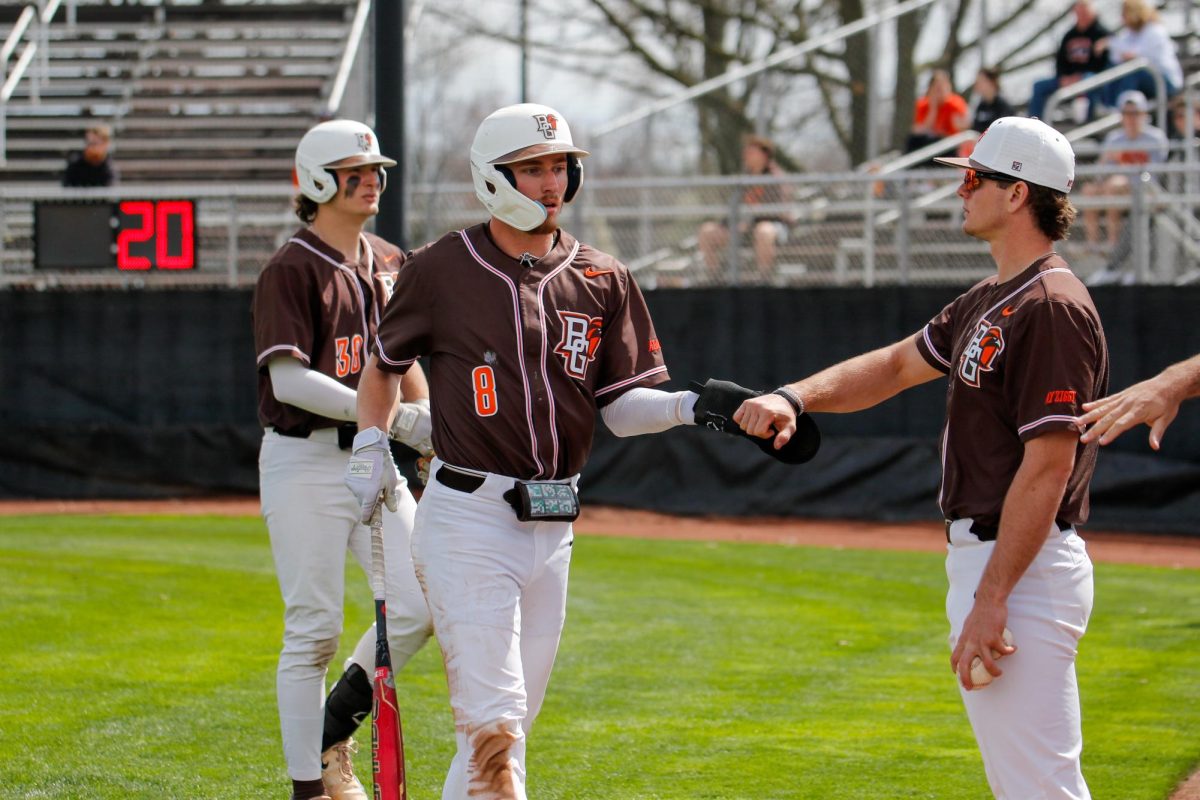Throughout campus, students are provided with bins to put cans, plastic bottles and newspapers in, as part of the University’s recycling program. But imagine separate bins for discarded and unused food to be used for organic recycling.
Recently, the Sentinel-Tribune ran a story on the village of Luckey implementing an organic recycling program. Organic recycling is the process of compiling unwanted food, plant and yard material, to be used for composting. Some students and community members might be wondering whether or not the University could get involved in a program like this.
Ken Rieman, the director of solid waste of Wood County, said the village of Luckey has been able to start this program because of its smaller size.
‘When you only have 100 households or so involved, then it is much easier to monitor,’ he said. ‘It’s a lot harder on a big scale because the workers handling the recycled material have to make sure that nothing is mixed in that can contaminate the environment.’
There are also a couple of big concerns with the University jumping into a program such as organic recycling, Rieman said.
‘The first issue is having a place to put the compost. There is only one certified site in Wood County for this and the University’s output would be too much,’ he said. ‘The other issue is that compliance is needed by everyone at the University, especially the students. If plastic spoons and forks end up with food scraps, then the whole system could be jeopardized.’
Amy Hoops is in charge of purchasing food and supplies for the University’s dining services. She said that she would welcome an organic recycling program if it came to campus.
‘I’m an advocate of the idea,’ she said. ‘It’s frustrating to have to throw out all this food on a daily basis, just for it to go to waste at a landfill.’
But even though she would like to see an organic recycling system in place, Hoops said a collective effort would be needed.
‘It’s not impossible, but it would take a commitment from everyone, not just the dining services,’ she said. ‘The students would have to cooperate and the grounds department would have to be involved to transport recycled material off campus. So, it would have to be a cycle to work.’
University Sustainability Coordinator Nick Hennessy said he believes a large commitment by the University would have to be made as well.
‘A number of groups on campus would really have to sit down and talk about what practical and regulatory hoops the University would have to jump through to implement an organic recycling program,’ he said. ‘And, a lot of student support would be needed as well.’
If the University were to implement a system such as the village of Luckey has, Hennessy said starting off with a small sample might be a good idea.
‘I would suggest implementing a program such as this is one dining center and then use that dining center as a pilot,’ he said. ‘Start with a small area first to see if it’s successful, then, expand if it works.’
Rieman said it might be beneficial to wait and see the results from the system in place at Luckey.
‘The Luckey program is a good start,’ he said. ‘We’ll have to see if it’s affordable and economical, and then work from there.’
The idea of organic recycling at the University should not be ruled out entirely, Hennessy said.
‘The University is moving in a very green and sustainable direction,’ he said. ‘So, anything is possible.’






